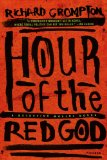Summary | Excerpt | Reviews | Beyond the book | Read-Alikes | Genres & Themes | Author Bio

A Novel
by Malla NunnA stunning and darkly romantic crime novel set in 1950s apartheid South Africa, featuring Detective Emmanuel Cooper -- a man caught up in a time and place where racial tensions and the raw hunger for power make life very dangerous indeed.
In a morally complex tale rich with authenticity, Nunn takes readers to Jacob's Rest, a tiny town on the border between South Africa and Mozambique. It is 1952, and new apartheid laws have recently gone into effect, dividing a nation into black and white while supposedly healing the political rifts between the Afrikaners and the English. Tensions simmer as the fault line between the oppressed and the oppressors cuts deeper, but it's not until an Afrikaner police officer is found dead that emotions more dangerous than anyone thought possible boil to the surface.
When Detective Emmanuel Cooper, an Englishman, begins investigating the murder, his mission is preempted by the powerful police Security Branch, who are dedicated to their campaign to flush out black communist radicals. But Detective Cooper isn't interested in political expediency and has never been one for making friends. He may be modest, but he radiates intelligence and certainly won't be getting on his knees before those in power. Instead, he strikes out on his own, following a trail of clues that lead him to uncover a shocking forbidden love and the imperfect life of Captain Pretorius, a man whose relationships with the black and coloured residents of the town he ruled were more complicated and more human than anyone could have imagined.
The first in her Detective Emmanuel Cooper series, A Beautiful Place to Die marks the debut of a talented writer who reads like a brilliant combination of Raymond Chandler and Graham Greene. It is a tale of murder, passion, corruption, and the corrosive double standard that defined an apartheid nation.
1
South Africa, September 1952.
Detective Sergeant Emmanuel Cooper switched off the engine and looked out through the dirty windscreen. He was in deep country. To get deeper he'd have to travel back in time to the Zulu wars. Two Ford pickup trucks, a white Mercedes, and a police van parked to his right placed him in the twentieth century. Ahead of him a group of black farmworkers stood along a rise with their backs toward him. The hard line of their shoulders obscured what lay ahead.
In the crease of a hot green hill, a jumpy herd boy with fifteen skinny cows stared at the unusual scattering of people in the middle of nowhere. The farm was a genuine crime scene after all -- not a hoax as district headquarters had thought. Emmanuel got out of the car and lifted his hat to a group of women and children sitting in the shade of a wild fig tree. A few of them politely nodded back, silent and fearful. Emmanuel checked for his notebook, his pen, and his handgun, mentally preparing ...
The novel's intricately woven plot leaves no leaf unturned, so that the conclusion is believable and narratively satisfying .... By the book's end, readers will find themselves as deeply entwined in the characters' fates as Nunn is herself, and left to ruminate over a number of weighty debates as the tale weaves in double standards, double lives, emotional betrayal, murder, corruption and sexual deviance...continued
Full Review
 (694 words)
(694 words)
(Reviewed by Allison Stadd).
Apartheid (meaning separateness in Afrikaans*) was a system of legal
racial segregation enforced by the National Party government of South Africa
between 1948 and 1990.
The new system was a way for the white Afrikaner National Party to ensure
their control over both South Africa's economy and social structure. The key was
white dominance of blacks and colored
(mixed descent) people. Apartheid was born as a political tactic but grew
to involve violence and extreme strife.
The apartheid laws were officially enacted in 1948, four years before the events
told in A Beautiful Place to Die. Racial discrimination became not simply
a mechanism engrained in local customs, but part and parcel of the government.
That is, apartheid ...

If you liked A Beautiful Place to Die, try these:

by Linda Castillo
Published 2014
An extraordinarily beautiful Amish woman, a dangerous femme fatale, is the central figure in a story that reveals a dark side of Painters Mill and its seemingly perfect Amish world.

by Richard Crompton
Published 2014
The Maasai believe in two gods. Enkai Narok, the Black God, is benign. Enkai Nanyokie, the Red God, is the god of anger, vengeance, and death.




Music is the pleasure the human mind experiences from counting without being aware that it is counting
Click Here to find out who said this, as well as discovering other famous literary quotes!